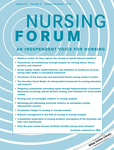Pregnancy unshackled: Increasing equity through implementation of perinatal depression screening, shared decision making, and treatment for incarcerated women
Abstract
Background
Perinatal depression (PD) is one of the most common medical complications of pregnancy. The prevalence of women in correctional settings has grown eight-fold in the last 30 years. A quarter of these women were either pregnant or within a year postpartum when entering custody. Recommendations to screen and treat all pregnant women for PD are being implemented nationwide.
Local Problem
In 2016, 71% of pregnant women entering Milwaukee County Jail had minimal or no prenatal care and significant rates of high-risk medical and social risk factors. The jail system was not screening for PD.
Methods
The Plan-Do-Study-Act method of quality improvement (QI), with four rapid cycles, was utilized. Patient tracer interviews and refusal rates were collected for baseline data two months preceding implementation. Data was analyzed using run charts to evaluate the impact of interventions on outcomes.
Intervention
PD screening was implemented with the Edinburgh Perinatal Depression Scale, and if scored positive, the Healthwise shared decision-making tool was utilized for therapy options and treatment initiated.
Results
A total of 101 women were seen, 93 were offered screening, 76 were screened, 43 were positive, and 37 started treatment within the facility. That is, 46% to 57 % of this aggregate of women who screen positive for PD and a decrease in patient refusal rates was seen throughout the process.
Conclusion
Rapid cycle QI was effective in standardizing PD screening and treatment. Replication of this project across correctional systems would help to bridge a gap of equitable care for incarcerated women.




